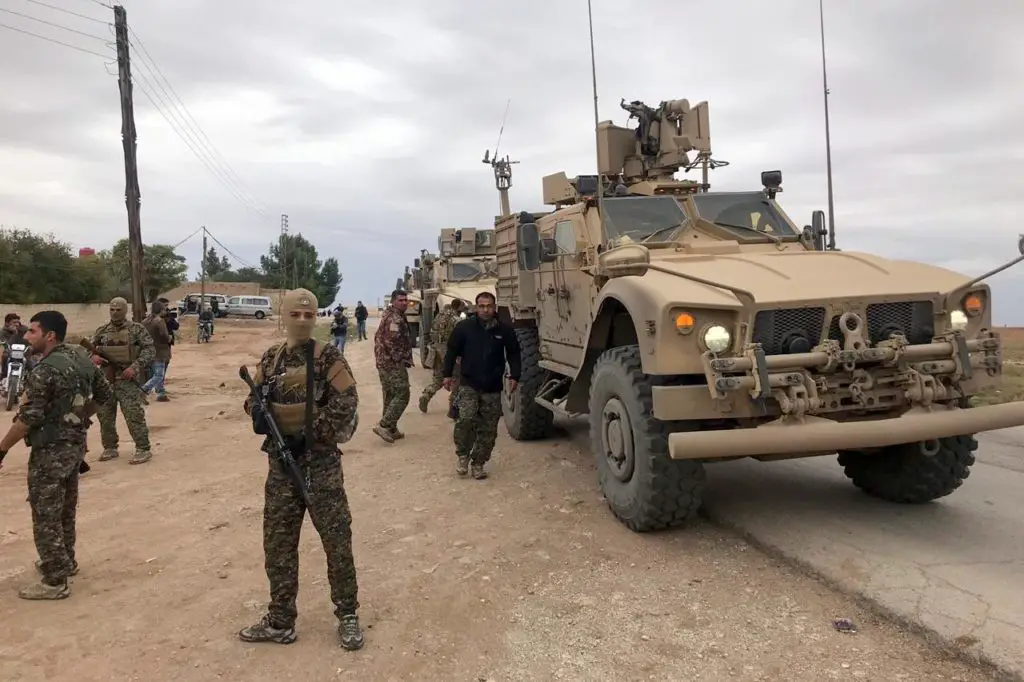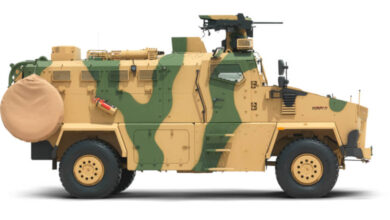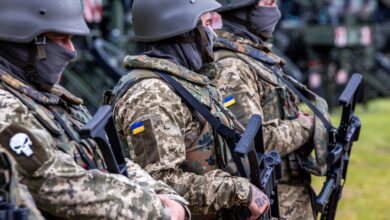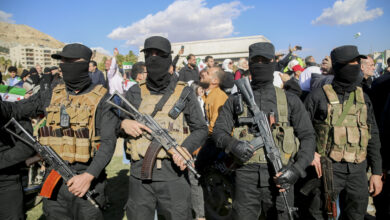EU expects Turkey to refrain from ‘unilateral’ Syria military action, Mogherini says
"A mutually acceptable outcome in northern Syria should address Turkey’s security concern without hampering the counter-Daesh campaign"
The European Union’s chief diplomat on Saturday, December 15 said the bloc expects Turkey to refrain from any unilateral action in Syria, where Ankara has threatened a new offensive east of the Euphrates river.
“The statements of a possible Turkish military operation in northeast Syria are a source of concern,” Federica Mogherini, the EU’s High Representative for Foreign Affairs and Security Policy and Vice-President of the European Commission said in a statement.
“We share the goal of ending violence, defeating terrorism and promoting stability in Syria and the wider region,” Mogherini said.
“We expect the Turkish authorities therefore to refrain from any unilateral action likely to undermine the efforts of the Counter-Daesh Coalition or to risk further instability in Syria,” she said, using the Arabic acronym for Islamic State.
On Wednesday, President Recep Tayyip Erdogan said that Turkey will launch a new operation in Syria within days against the People’s Protection Units (YPG) militia, and on Friday, Erdogan appeared to stick to his guns, saying that Turkey was “determined to bring peace and security to areas east of the Euphrates.”
The YPG is considered by the Turkish government to be inextricably linked to the outlawed Kurdistan Workers’ Party (PKK), which has waged a decades-long insurgency in Turkey, and is designated as a terror group by Turkey and its Western allies.
But the YPG is not a proscribed organization in the United Kingdom, United States or European Union, and it is a key component of the U.S.-led Coalition-backed Syrian Democratic Forces alliance which is waging the ground campaign against ISIS in eastern Syria.
New administrative arrangements in areas of northern Syria under SDF control were formalized in 2016 with the creation of the Democratic Federation of Northern Syria, but Turkey refuses to recognise the territory on its border.
The Pentagon warned Wednesday against unilateral military action in northern Syria.
“Unilateral military action into northeast Syria by any party, particularly as U.S. personnel may be present or in the vicinity, is of grave concern. We would find any such actions unacceptable,” Pentagon spokesperson Commander Sean Robertson said in a statement, Reuters reported.
On Thursday, Major Youssef Hammoud, spokesperson for the National Army, a Turkey-backed Syrian rebel alliance, claimed up to 15,000 fighters are ready to join any Turkish military offensive in northeast Syria, but no launch date had been set for the operation, Reuters reported.
He said the battle “will be launched simultaneously from several fronts … in Manbij and Tel Abyad and Ras al-Ayn.”
Hammoud had earlier said the rebel groups were undertaking training supervised by Turkish officers in National Army camps in preparation for the operation.
On Friday, SDF commander-in-chief General Mazloum Kobani told Reuters the alliance was “ready for any attack and will respond strongly.”
Kobani, who met U.S. Special Representative for Syria Engagement James Jeffrey this week, said that Jeffrey “knows well that Turkish attacks will make the fight against Daesh fail and all the work between us will go to waste.”
“If there is a Turkish attack, the YPG forces will be forced to come protect the borders, to defend their families,” he said, adding that without them, “the battle against Daesh is not possible.”
Mogherini called Turkey “a critically important actor in this crisis and in the region,” and said that “as the fight against Daesh is entering its final stages, all parties must work towards the goal of ensuring its upcoming defeat, which remains an indispensable objective for any durable solution to the Syrian crisis.”

US attempts to defuse northern Syria tensions
Any military move against the YPG would be complicated by the likelihood of Turkish forces coming into contact with U.S. troops in northern Syria.
The SDF announced on October 31 it was suspending its operation against ISIS after Turkey fired across the border at militia posts in northern Syria over a period of days in late October and early November.
In an attempt to defuse tensions, U.S. troops carried out patrols in SDF-controlled territory that was targeted by Turkey.
The fight against ISIS in the Hajin area of eastern Syria resumed on November 11, following what the SDF said were “intensive contacts” with the international Coalition and “strong diplomatic activity” to defuse the crisis.
On November 21, defense secretary James Mattis said the U.S. military was “putting in observation posts in several locations” along the northern Syrian border so that they could “track any threat that we can spot going up into Turkey.”
Mattis said that the installation of observation points was designed to ensure that “the people we have fighting down in the [Middle Euphrates River Valley] are not drawn off that fight.”
On December 7, Turkey’s National Defense Minister Hulusi Akar asked the United States to abandon its new military observation posts in northern Syria in a meeting with U.S. Special Representative Jeffrey, but the Pentagon on Tuesday announced the posts’ establishment on the northeast Syria border region.
On Thursday, the Chairman of the U.S. Joint Chiefs of Staff General Joseph Dunford, spoke with Chief of the Turkish General Staff General Yasar Guler about the U.S. observation posts, which a statement said were “established to address Turkish security concerns.”
Dunford “emphasized that the observation posts will continue to focus on and deter threats from Syria toward the Turkish southern border” and that “the U.S. remains committed to coordinating efforts with Turkey to bring stability to northeastern Syria.”
The recent halt in the SDF fight against ISIS was not the first. Earlier this year, the SDF fighters withdrew to defend the Efrin enclave after Turkish military forces backed Syrian opposition fighters to take region from the YPG in a two-month air and ground offensive called Operation Olive Branch.
There was no ISIS presence in Efrin.

Mogherini calls for rapid implementation of Manbij roadmap
Mogherini said “the rapid implementation of the roadmap agreed between Turkey and the U.S. on Manbij is key.”
“A mutually acceptable outcome in northern Syria should address Turkey’s security concern without hampering the counter-Daesh campaign,” she said.
Her statement echoes a joint statement released after a December 7 meeting of the Turkey-U.S. High-Level Working Group on Syria when the two sides “committed to accelerated and concrete progress on the Manbij Roadmap by the end of the year.”
The SDF captured the city of Manbij from ISIS on August 12, 2016 after a 75-day battle later named “Operation Martyr and Commander Faysal Abu Layla” after the SDF commander who was killed during the battle.
At the same time, Turkey launched Operation Euphrates Shield to capture ISIS-held territory to the west of the Euphrates and prevent the SDF from expanding territory it had captured from the jihadists around Manbij, creating a tense front line near the city.
Fighters from the YPG and Women’s Protection Units (YPJ) made up the bulk of those deployed in the SDF operation, and the YPG later said it handed its points of control west of the Euphrates river to Manbij Military Council, as it had agreed ahead of the offensive.
Turkey has long disputed this version of events, but the YPG announced on June 5 that it was pulling its remaining advisors from Manbij, a day after the U.S. and Turkey agreed to the roadmap for Manbij.
The contents of the roadmap are not public, but according to Turkey’s state news agency Anadolu it includes the ‘establishment’ of a local government and a military council to provide security.
Manbij already has both of these structures, and MMC spokesperson Shervan Derwish told The Defense Post the U.S. and the Coalition pledged to protect the city before the council agreed to allow joint U.S.-Turkey patrols near the city that began in early November.
But Erdogan on Wednesday said Turkey “still not got the result it wanted” in Manbij, and on Friday said that either the U.S. “clean the city and [the YPG] leave, or we’re going into Manbij as well.”
With reporting from AFP












